A New Scientific Study Supports the Effectiveness of Science Bits
27 de mayo de 2024
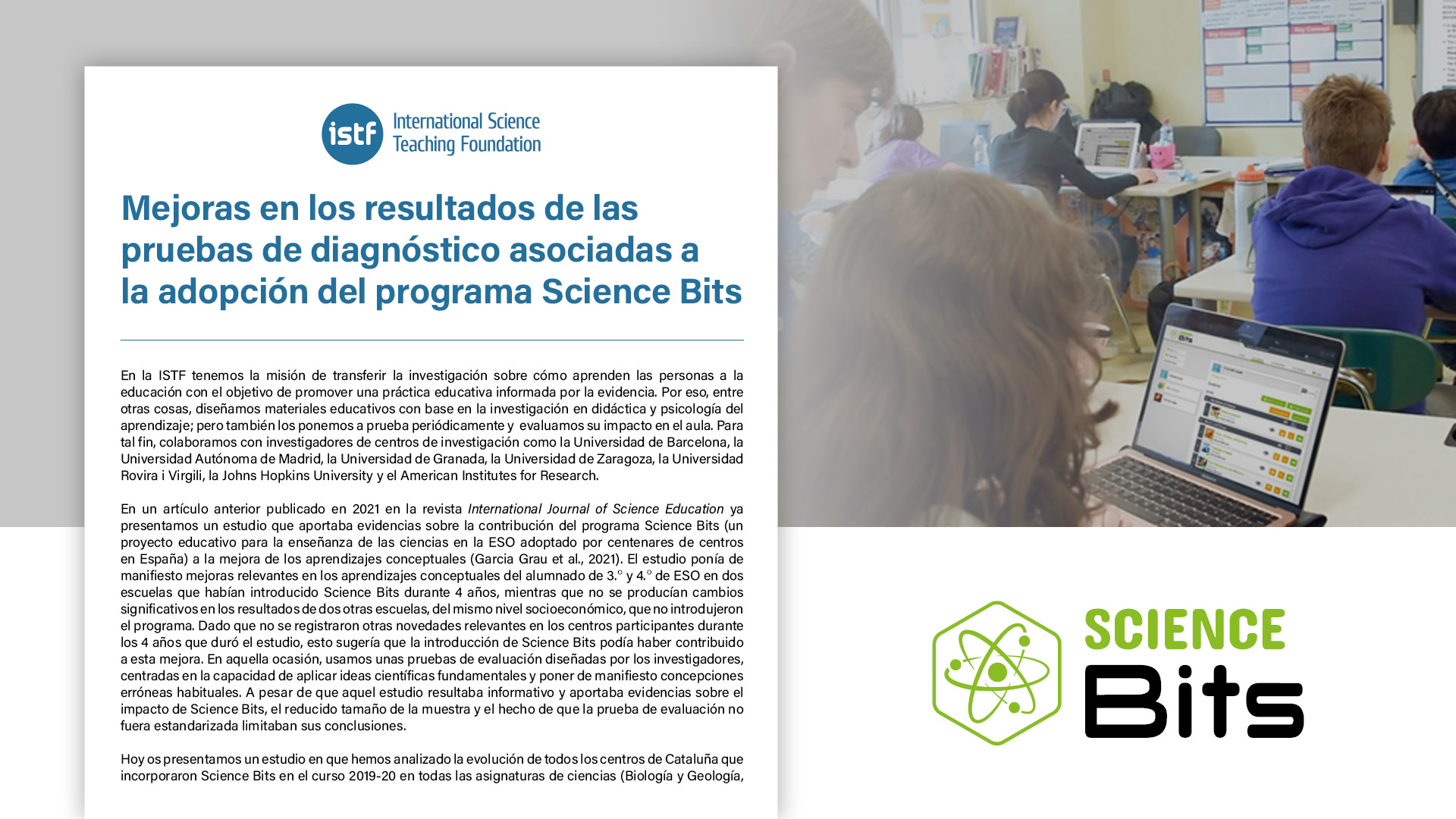
- A study published in the International Journal of Science Education by researchers from the University of Barcelona and the University Rovira i Virgili analyzed the short and long-term conceptual learning of students from two schools that adopted the Science Bits program in their science classes throughout the secondary education and compared it to two schools that used other methods.
- The results show that the students from the schools that adopted the Science Bits program and its 5E instructional model improved their conceptual learning in a relevant and sustained way, while the schools in the control group did not undergo any changes over the 5 years of the study.
- Developed by the International Science Teaching Foundation, Science Bits is the first curricular instructional project designed in accordance with scientific evidence on how people learn and the first one that has been scientifically validated in terms of effectiveness.
How many instructional solutions are based on scientific research on learning and teaching?
Apart from those programs that specifically target a number of learning disabilities, educational programs (especially curriculums) offered to schools today rarely have scientific research to support them. It is therefore remarkable that the International Science Teaching Foundation (ISTF) aims to develop instructional solutions in the field of science and mathematics that are based on research. But, in addition to designing teaching resources based on the science of how we learn, it also periodically subjects them to scientific scrutiny to evaluate their effectiveness and identify possible areas for improvement.
With this motivation in mind, a team of researchers from the University of Barcelona and the University Rovira i Virgili, in collaboration with the ISTF team, published in 2021 a study in the International Journal of Science Education with the results of a 5-year study in which the effects of the Science Bits science curriculum were analyzed.
Science Bits is an instructional program which has been developed over a period of eight years and which brings the 5E Model (Engage, Explore, Explain, Elaborate and Evaluate) to schools. This methodology promotes learning through guided inquiry, reasoning, and the application of what has been learned in relevant contexts. The resulting learning experiences are deeper and based on understanding, which makes learning more durable and transferable to new situations. This study provides evidence of these facts: it analyzes the short and long-term conceptual learning of students from two schools that introduced Science Bits in their science classes and compares it to that of two schools that used other methods. The results show that the students from the schools that adopted the 5E model through the Science Bits program improved their conceptual learning significantly (by almost half a standard deviation, which is considered a relevant effect in educational contexts), while the schools in the control group did not experience any improvements during the 5-year study.
Research in the Classroom
One of the schools that introduced Science Bits, Llor School (Barcelona), decided to also analyze the results of their 9th graders in the standarized tests carried out each year by the local government over those 5 years of study. “The trend has been clearly upward: more and more students have fallen within the range of students who obtain high or medium-high results, and fewer get low or medium-low results,” says Josep Badia, Head of Science at this school. “The 5E model provides us with a well-founded and structured framework. Its five activity types consist of activating prior knowledge through a relevant context (Engage), exploring the scientific concepts involved in that context in a reasoned and cooperative way (Explore), formalizing and structuring new knowledge (Explain), applying that knowledge in other contexts by carrying out a team project (Elaborate), and retrieving the knowledge acquired to solve several problems (Evaluate),” says Michael Martin, a science and mathematics teacher at the same school.
The results of the study further show that the students from the other school that adopted Science Bits, Solc School (Barcelona), also experienced a significant improvement. “The Science Bits methodology is very successful because the construction of knowledge is based on guided inquiry, elaboration, and contextualized application. Our experience over these years has also revealed two additional strengths. The first being that the activities of the Evaluate section allow for a contextualized, rich, and cross-curricular evaluation of learning. This is a good example of the fact that when we transform evaluation, we are transforming the way we teach and learn. The second strength is that the lab simulators are so realistic that the standard classroom can be transformed into a laboratory, but they are also informative of a series of practices that the teacher can actually carry out in the school’s laboratory. This highlights the great adaptability of Science Bits to the reality of each school, “says Pep Espigol, science teacher and pedagogical director at the Solc School.
Evidence Based Education
“If we demand that any medical treatment is subject to a strict scientific control that ensures its effectiveness and assesses risks before its application, why don’t we do the same in education? Why don’t we demand that the instructional methods and resources offered to schools are based on research and subject to study to verify their effectiveness?,” says Hector Ruiz-Martin, director of the International Science Teaching Foundation and researcher in the field of cognitive psychology of memory and learning in educational contexts. Ruiz-Martin, author of “How Do We Learn? A Scientific Approach to Learning and Teaching“, advocates for developing learning and teaching resources that are based on scientific evidence.
“Today we have scientific knowledge about what actions and circumstances promote lasting, transferable, functional, and productive learning, but also a huge amount of evidence obtained directly from the classroom by teachers from across all instructional stages and educational contexts. It makes no sense that we do not take advantage of all this information to better support instructional practices, nor does it make sense that we do not evaluate its application objectively to make better decisions,” adds Ruiz-Martin. Heading up the International Science Teaching Foundation, Ruiz-Martin is committed to permanent research and development, an approach that allows for progressively adjusting instructional solutions so that they adapt to different contexts and improve their effectiveness.
An Internationally Recognized and Award-Winning Project
The scientific approach to science teaching and learning adopted by Science Bits has won it more than 20 international awards. One such award is the Academics’ Choice Smart Book for Mind-Building Excellence, selected by a jury of academics from leading universities such as Princeton, Harvard, George Washington University, and other renowned educational institutions. Other awards include the United Nations World Summit Award, the CSIC Science in Action award (Spain’s largest public research body), the Qatar Foundation’s WISE Award, and the CODiE Award from the association for the software and digital content industries of the US.
Science Bits has firmly established itself in the education community only eight years after its launch. It is currently being used by almost 2,000 schools around the globe.
***
Link to the article: https://www.tandfonline.com/doi/full/10.1080/09500693.2021.1918354



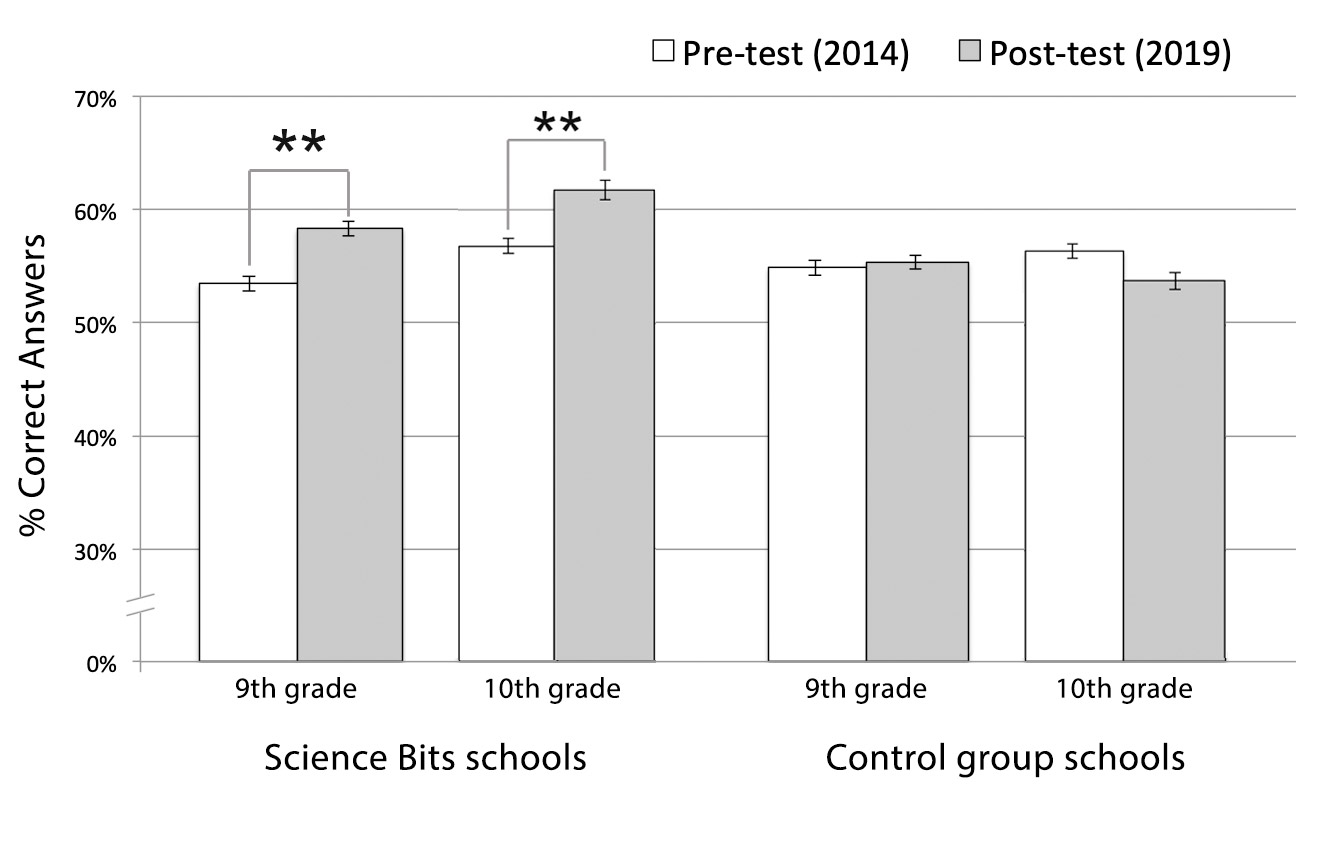

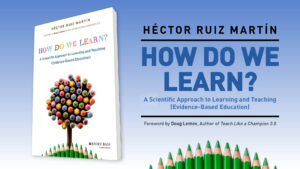
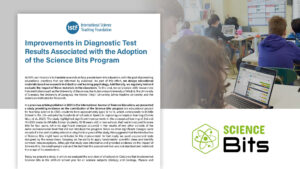
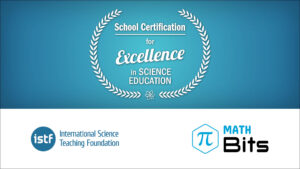





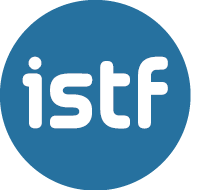
Leave a Reply